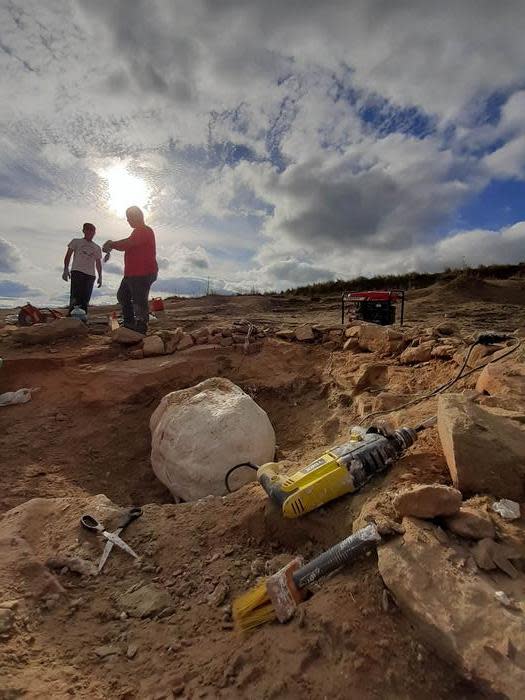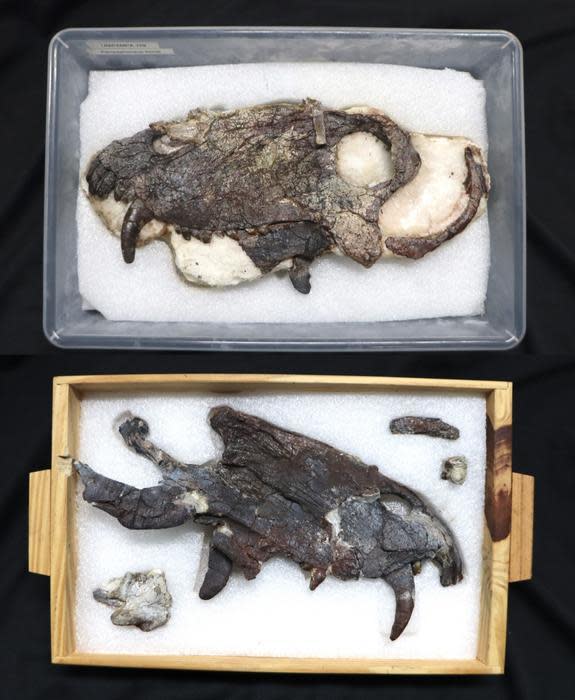Fossils reveal "gnarly-looking" predators roaming Earth before dinosaurs
A 265-million-year-old fossil found in South America gives new insight into a large, predatory species that roamed the Earth long before dinosaurs ever did.
The species is called "Pampaphoneus biccai," according to a news release from Harvard University's Department of Organismic and Evolutionary Biology. The creatures "dominated" South America 40 million years before dinosaurs roamed the planet. According to the news release and a study published in the Zoological Journal of the Linnean Society, researchers from all over the world found an "exquisitely preserved" 265-million-year-old set of fossils from the creature.
The fossil species was found in São Gabriel, a rural area in southern Brazil. The fossil includes a "complete skull and some bones," according to the news release, including rib and arm bones. It took paleontologists from the Paleontology Laboratory at the Federal University of Pampa and the Universidade Federal do Rio Grande do Sul one month to collect the fossil. Researchers then spent three years cleaning and studying the skull.

"This animal was a gnarly-looking beast, and it must have evoked sheer dread in anything that crossed its path," said study co-author Stephanie E. Pierce, a professor in the department of ogranismic and evolutionary biology at Harvard University a curator at the school's Museum of Comparative Zoology. "Its discovery is key to providing a glimpse into the community structure of terrestrial ecosystems just prior to the biggest mass extinction of all time. A spectacular find that demonstrates the global importance of Brazil's fossil record."
Pampaphoneus biccai are part of a clade, or group of creatures with a shared ancestor. There are four main clades from the period where these creatures existed, and they were part of the Dinocephalian clade, which had thick cranial bones and were large land animals that were found in South Africa and Russia. Pampaphoneus biccai are the only known species of dinocephalians in Brazil, researchers said. Researchers estimate that the Pampaphoneus biccai could be nearly three meters in length and weigh around 400 kilograms, or over 880 pounds.

This is only the second such skull found in South America, according to the news release. The newly-found skull is larger than the first and offers researchers "unprecedented information about its morphology due to the exceptional preservation of its bones."
"Pampaphoneus played the same ecological role as modern big cats," said senior author Felipe Pinheiro, the laboratory head and a professor at the Federal University of Pampa. "It was the largest terrestrial predator we know of from the Permian in South America. The animal had large, sharp canine teeth adapted for capturing prey. Its dentition and cranial architecture suggest that its bite was strong enough to chew bones, much like modern-day hyenas."
Walk-in mental health clinic a nationwide model
Inside the manhunt for Danelo Cavalcante
Pennsylvania officials speak after escaped killer Danelo Cavalcante captured
